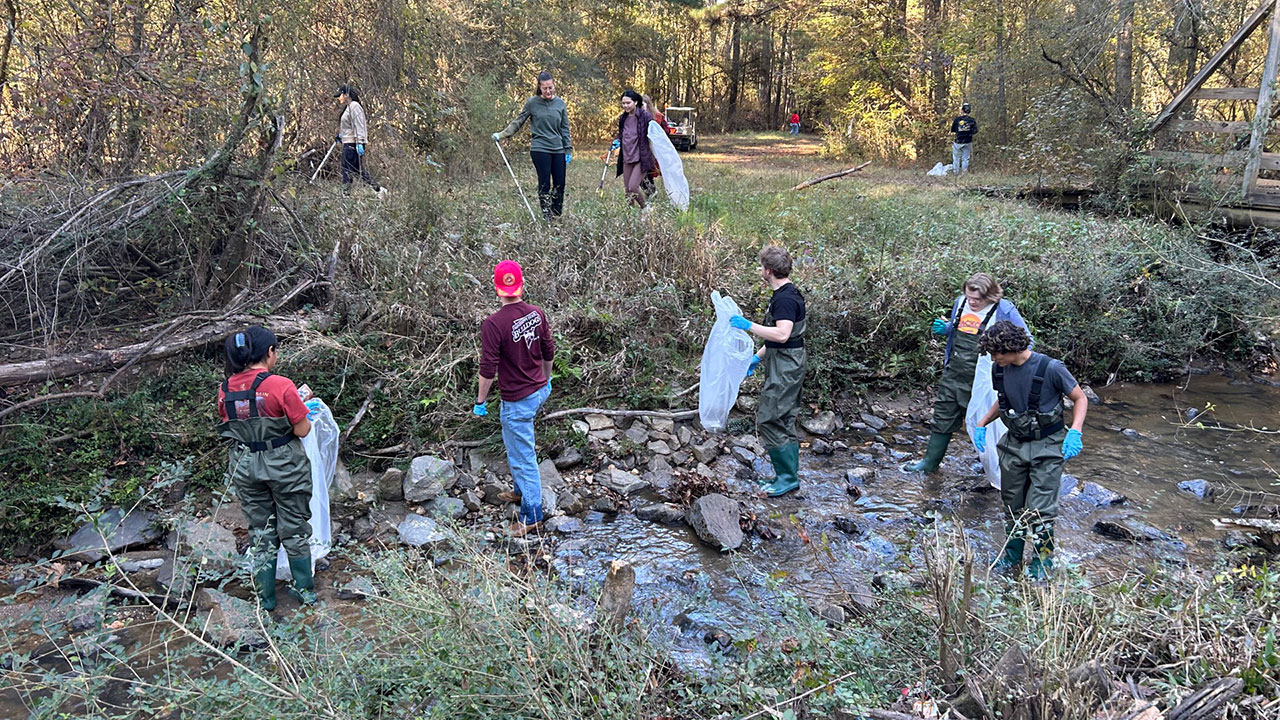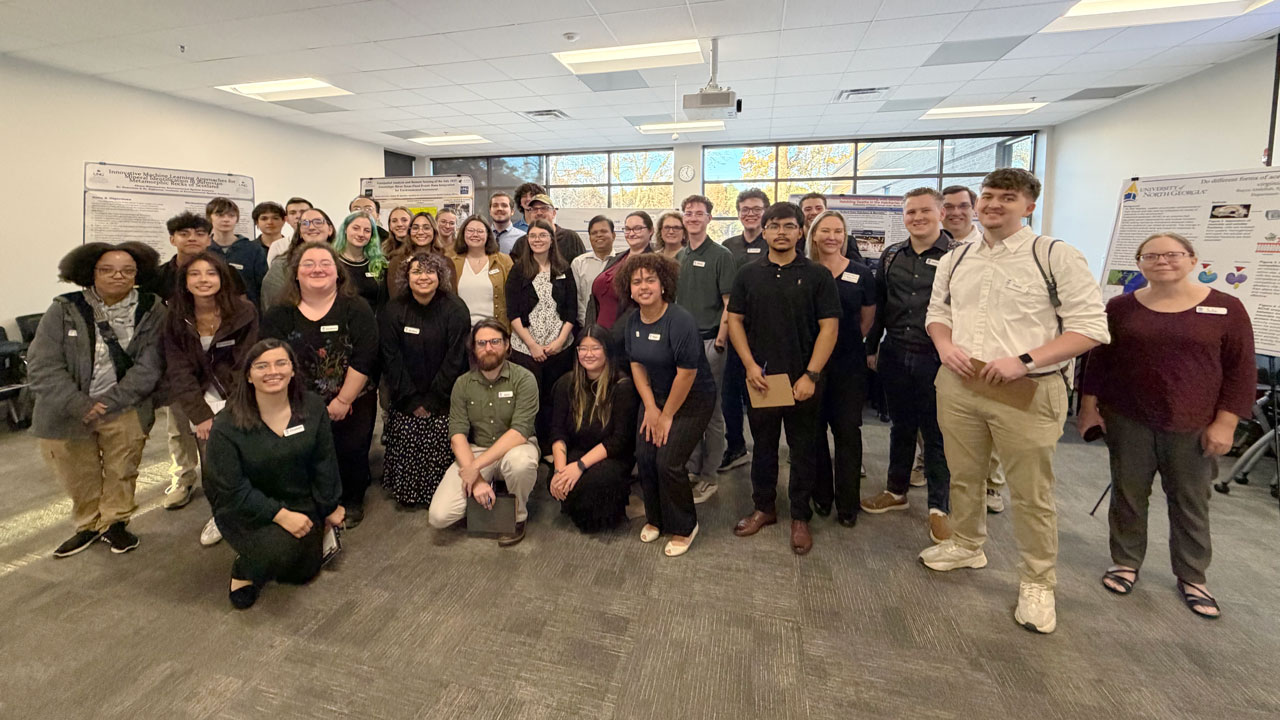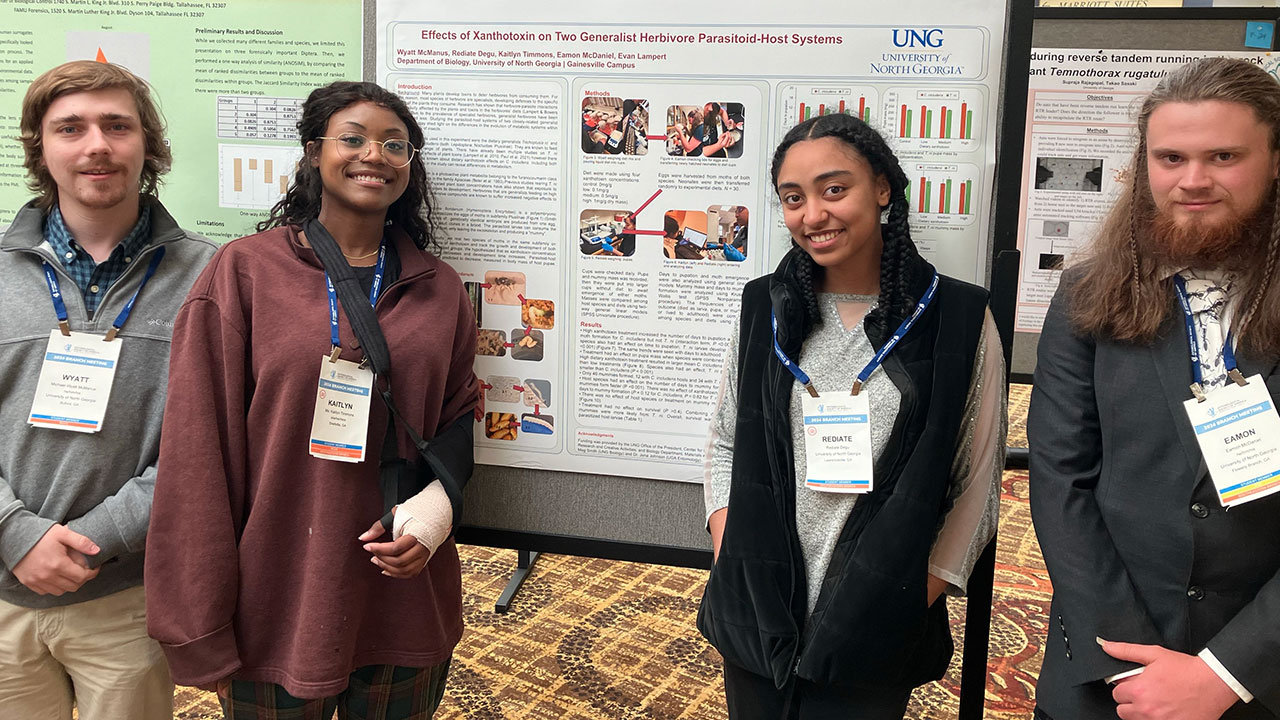UNG partners with Zoo Atlanta on research

University of North Georgia (UNG) biology professors Dr. Natalie Hyslop and Dr. Jennifer Mook's decade-long research project is receiving assistance from Zoo Atlanta's Mabel Dorn Reeder Conservation Endowment Fund. The pair have been evaluating translocating methods for Eastern box turtles threatened by commercial development and poaching in north Georgia and examining the health of this turtle population.
"Jennifer and I started this project together 10 years ago and we involved students in every aspect," Hyslop said. "Our thought was let's find out some really important information about an incredibly long- lived, endangered vertebrate species that has really important ecosystem services."
Turtles are a huge part of their ecosystems and ultimately aid in keeping humans alive. Box turtles are crucial for seed dispersal, the formation of soil, and the nutrients and fertilization of soil through their burrowing actions. Of the more than 350 species of turtles, 61% are threatened or extinct.
As a veterinarian, my goal is to help assess the overall health of these turtles. The samples collected will give us important information about their health, including being able to determine if there are infectious diseases circulating in this population.
Dr. Megan Watson
Zoo Atlanta associate veterinarian
Once a year, Hyslop and Mook draw blood, take basic measurements, monitor temperatures and record data for 37 turtles with radio tracker attachments. Zoo Atlanta’s Dr. Megan Watson, an associate veterinarian, assisted with these recordings.
"As a veterinarian, my goal is to help assess the overall health of these turtles. The samples collected will give us important information about their health, including being able to determine if there are infectious diseases circulating in this population," Watson said.
UNG students have been involved in the project since its inception in 2013 and have gained a front-row educational experience with research practices. Students participate in the blood and infection analysis and the stress analysis. They also review the reproductive ecology, population ecology and sources of mortality of the animals.
"The main impact the research project has had on me is increasing my knowledge of eastern box turtles and how locations are essential for their populations," Alisha Paul, a junior pursuing a degree in biology said. "My aspiration is to be a microbiologist, but I am also interested in the conservation of these organisms so that future generations can see them. Helping with this study made me feel like I was assisting in the beginning process of conserving eastern box turtles."
The turtles can go to live from 75 to 100 years. Box turtles are the only species of turtle to be able to fully enclose themselves in their shell, hence their name. More on their project and findings can be found here.



